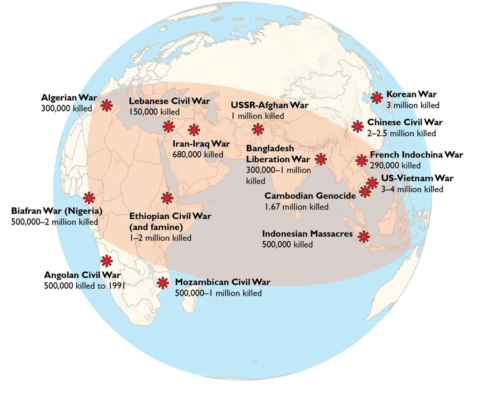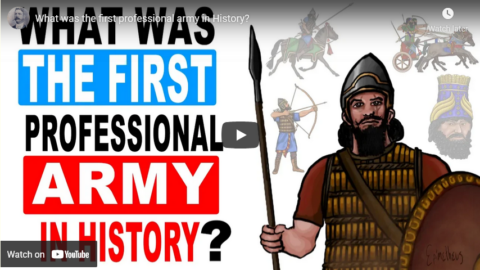Rex Krueger
Published 5 May 2021I tested three planes for year. Is one of them right for your shop and budget?
More video and exclusive content: http://www.patreon.com/rexkrueger
Tools and Links Below! (Scroll down)———————————————————————-
Planes in this video:
Stanley Sweetheart No. 4: https://amzn.to/3nOtG3G (affiliate)
Stanley Sweetheart Low Angle Jack: https://amzn.to/3h2E5qZ (affiliate)
Kunz Plus Smoothing Plane: https://amzn.to/3b3zOzI (affiliate)
ECE Jack Plane: https://bit.ly/3epiGXD (non-affiliate)
ECE Jack in Europe: https://www.fine-tools.com/doppelh.html (non-affiliate)———————————————————————-
Take your planing to the next level with these videos:
Hand tools for $100 #3: Fast plane restoration with BENCH GRINDER:
https://youtu.be/P6-zQSFUl84True Beginner: Learn to use your hand plane!:
https://youtu.be/J0-sP9pOFvATrue Beginner: Basic Sandpaper Sharpening
https://youtu.be/gY6pOKQRw74Will a premium plane really cut “out of the box”?:
https://youtu.be/pnV27QVLmzASuper-tuning the Stanley 12-404 plane:
https://youtu.be/OrMQrKn61kAFast freehand sharpening: no jigs, no guides, no sandpaper:
https://youtu.be/EmyW8nFDLr4Also, check out this playlist, All About Handplanes:
https://youtube.com/playlist?list=PLR…———————————————————————-
Make your own planes with the Specialty Plane Bundle! It includes:
– Router Plane
– Spoke Shave
– Low Angle Jack Plane
– Rabbet Plane
– Grooving Planehttps://youtube.com/playlist?list=PLR…
———————————————————————-
Sign up for Fabrication First, my FREE newsletter: http://eepurl.com/gRhEVT?
———————————————————————-
Wood Work for Humans Tool List (affiliate):
*Cutting*
Gyokucho Ryoba Saw: https://amzn.to/2Z5Wmda
Dewalt Panel Saw: https://amzn.to/2HJqGmO
Suizan Dozuki Handsaw: https://amzn.to/3abRyXB
(Winner of the affordable dovetail-saw shootout.)
Spear and Jackson Tenon Saw: https://amzn.to/2zykhs6
(Needs tune-up to work well.)
Crown Tenon Saw: https://amzn.to/3l89Dut
(Works out of the box)
Carving Knife: https://amzn.to/2DkbsnM
Narex True Imperial Chisels: https://amzn.to/2EX4xls
(My favorite affordable new chisels.)
Blue-Handled Marples Chisels: https://amzn.to/2tVJARY
(I use these to make the DIY specialty planes, but I also like them for general work.)*Sharpening*
Honing Guide: https://amzn.to/2TaJEZM
Norton Coarse/Fine Oil Stone: https://amzn.to/36seh2m
Natural Arkansas Fine Oil Stone: https://amzn.to/3irDQmq
Green buffing compound: https://amzn.to/2XuUBE2*Marking and Measuring*
Stockman Knife: https://amzn.to/2Pp4bWP
(For marking and the built-in awl).
Speed Square: https://amzn.to/3gSi6jK
Stanley Marking Knife: https://amzn.to/2Ewrxo3
(Excellent, inexpensive marking knife.)
Blue Kreg measuring jig: https://amzn.to/2QTnKYd
Round-head Protractor: https://amzn.to/37fJ6oz*Drilling*
Forstner Bits: https://amzn.to/3jpBgPl
Spade Bits: https://amzn.to/2U5kvML*Work-Holding*
Orange F Clamps: https://amzn.to/2u3tp4X
Screw Clamp: https://amzn.to/3gCa5i8Get my woodturning book: http://www.rexkrueger.com/book
Follow me on Instagram: @rexkrueger
May 6, 2021
Three Mid-Priced Handplanes Tested for a Year
Cold War 2: Electric Dumbaloo
Seva Gunisky at Hegemon has some thoughts on the undeclared-but-real new Cold War between the Peoples’ Republic Of China and what remains of the “west”:
Last week I discussed some reasons for and against the label of “Cold War” to describe US-Chinese relations, but mostly ignored the ethical implications of this debate. Since then I’ve encountered some genuinely terrible takes on the subject, so I wanted to expand on the idea just a bit.
One thing I failed to mention is how the presence of Chinese-Americans in the US — something largely missing during the first Cold War — complicates the debate. If you’re a China dove, one argument might be that any criticism of China’s regime amounts to racism against Chinese-Americans …
I’ve worked with many people with Chinese ancestry and people who came to Canada quite recently (in the software business it’d be hard to avoid working with folks from former and current communist countries), so I’ve always tried to be as careful as possible to couch my criticism of China — the PRC — to ensure that even a casual reader is clear that I’m against the government and their system, not individual people from China. It doesn’t always work, because for too many people these days, everything has to be viewed through a racist lens and anything that might possibly look or sound like racism must therefore absolutely be racism.
I think this argument can be taken too far, and used as a cheap way to shield China’s regime from legitimate criticism. As Alex Hazanov points out, it’s the same patronizing conflation people make when arguing that any criticism of Israel must be an attack on American Jews.
The doves are right, however, that the presence of nearly four million Chinese-Americans makes cold war discourse more fraught than the first time around, when the Soviets were “white” and safely far away. Official statements and attitudes will have to take special care, but in general the US does not have a great history in this regard. I fully expect reactionary cranks to demand that Chinese-Americans publicly and ritualistically denounce the Chinese government. Still, I hope it should be obvious that characterizing any critique of China’s government as “imperialist” or “sinophobic” is silly.
But brace yourselves for the shitstorm of dumb that will accompany this (hopefully cold) geostrategic conflict:
Take first Cold War discourse, add a dash of racism, filter it through social media, and you are beginning to get a sense of how dumb the debates are going to be.
[…]
And if we are going to pick a cold war “doctrine”, we should consider that neither Russia or China is looking great in the medium run. It seems that despite its supposed efficiency the Chinese regime is unable to resolve the information problem common in closed regimes, that regime personalization under Xi has worsened the problem, and that this, combined with structural/demographic problems, means the Chinese regime has a rough road ahead in the next 10-30 years.
If so, the best policy for US is certainly to avoid head-on confrontation in favor of something like neo-containment. But that’s another conversation.
H/T to Colby Cosh for the link.
Il Duce and the Fascist Abuse of History | B2W: ZEITGEIST! I E.17 – Harvest 1922
TimeGhost History
Published 5 May 2021The modern age is an age of modern things. But it is also an age when people yearn for times past. One of the main men to weaponize this yearning is Benito Mussolini, and this season, he moves to recreate the Roman Empire in his fascist image.
Get your own Indy Neidell Tie here: https://www.youtube.com/channel/UC4Mi…
Join us on Patreon: https://www.patreon.com/TimeGhostHistory
Hosted by: Indy Neidell
Written by: Francis van Berkel
Director: Astrid Deinhard
Producers: Astrid Deinhard and Spartacus Olsson
Executive Producers: Astrid Deinhard, Indy Neidell, Spartacus Olsson, Bodo Rittenauer
Creative Producer: Maria Kyhle
Post-Production Director: Wieke Kapteijns
Research by: Francis van Berkel and Timothy Smith
Image Research by: Lucas Aimo
Edited by: Lucas Aimo
Sound design: Marek KamińskiColorizations:
– Daniel Weiss
– Mikołaj UchmanArchive by Screenocean/Reuters https://www.screenocean.com.
A TimeGhost chronological documentary produced by OnLion Entertainment GmbH.
From the comments:
TimeGhost History
2 days ago (edited)
The only thing more interesting than learning about history is learning about how people in history learned about history.For starters, it is just interesting in itself. Anyone with a passion for history will want to hear about the circumstances of how a new discovery was made or how certain historical narratives were preserved over time. But more analytically, looking at how a society understood its history can tell you a lot about that society understood itself and the contemporary world around it. That second point is particularly true of the modern age. Ironically, it is a very modern “thing” to be so aware of history. Indeed, the modern age saw the birth of the museum, of nationalist histories, and even the concept of what “History” itself was (note the capital H).
It’s such a massive topic and one that perhaps isn’t suited to a single pinned comment. Interested in learning more? Maybe we’ll do another video on it someday. In the meantime, you can read up the works of Reinhart Koselleck … that should keep you occupied.
Fallen Flag — the Northern Pacific Railway

Despite the vast land grants, the costs of building the railway eventually drove Jay Cooke, the original financial backer, into bankruptcy which was one of the major triggers of the financial disaster known as the Panic of 1873. The economic impact was widespread and was known — until the 1930s — as the “Great Depression”, and the US economy took several years to resume growth while other industrialized countries suffered the effects for longer.
NP reorganized by converting the bonds to stock, and the Lake Superior & Mississippi was reorganized as the St. Paul & Duluth. In 1881 control of the NP was purchased by Henry Villard, who also controlled the Oregon Railway & Navigation Co. and the Oregon & California Railroad. On Sept. 8, 1883, NP drove a last spike at Gold Creek, Mont., near Garrison, completing a line from Duluth to Wallula Junction, Wash. Northern Pacific trains continued on the rails of the OR&N to Portland, where NP’s own line to Tacoma resumed (it crossed the Columbia River by ferry from Goble, Ore., to Kalama, Wash.).
Even before completing the line at Gold Creek, NP began constructing a direct line from Pasco, Wash., over the Cascade Range to Tacoma. The Puget Sound area was beginning to grow, and NP wanted to reach it with its own line rather than rely on OR&N. Indeed, soon after the last-spike ceremonies, Villard’s empire collapsed and OR&N became part of Union Pacific (Southern Pacific got the Oregon & California). The Pasco–Tacoma line opened in 1887, with temporary switchbacks carrying trains over Stampede Pass until the opening of Stampede Tunnel in May 1888.
To help populate the railway’s claimed lands, colonization offices were established in northern Europe in the mid-1880s to attract immigrants to settle and farm along the right of way. Many Americans of German or Scandinavian ancestry can trace their roots back to these programs, which generally offered very cheap package deals for transportation to the United States along with parcels of land and other inducements.

Detail from an 1885 Rand McNally publication showing a “Shipper’s Guide To All Points On And Connections To the Northern Pacific Railroad, Its Branches And Connecting Lines”
Original scan from the Norman B. Leventhal Map Center at the BPL via Wikimedia Commons.
In 1901 Northern Pacific and Great Northern gained control of the Chicago, Burlington & Quincy by jointly purchasing approximately 98 percent of its capital stock. That same year James J. Hill and J. P. Morgan formed the Northern Securities Co. as a holding company for NP and Great Northern. The U.S. Supreme Court dissolved Northern Securities in 1904. In 1905 the two roads organized the Spokane, Portland & Seattle, which was completed from Spokane through Pasco to Portland in 1908. GN and NP attempted consolidation in 1927, but the Interstate Commerce Commission made giving up control of the Burlington a requisite for approval, a condition the roads found unacceptable.
In October 1941 NP purchased the property of the Minnesota & International Railway (Brainerd to International Falls, Minn.), which it had controlled for a number of years.
In image, Northern Pacific was the most conservative of the three northern transcontinentals. (Great Northern was a prosperous, well-thought-out railroad; the Milwaukee Road was a brash newcomer.) Bulking large in NP’s freight traffic were wheat and lumber. In the 1920s and 1930s NP suffered from smaller than usual wheat crops and competition from ships for lumber moving to the East Coast. Ship competition decreased during World War II, and postwar prosperity brought an increase in building activity and population growth to the area NP served. NP was the oldest of the northern transcontinentals and had been instrumental in settling the northern plains. It served the populous areas of North Dakota, Montana, and Washington. Its slogan was “Main Street of the Northwest,” and its secondary passenger train of the 1950s and ’60s was the Mainstreeter. Its flagship was the North Coast Limited, launched in 1900.
In 1956 NP and Great Northern again studied merger of the two roads, the Burlington, and the Spokane, Portland & Seattle. In 1960 the directors of both roads approved the merger terms. On March 2, 1970, NP was merged into Burlington Northern along with Great Northern; Chicago, Burlington & Quincy; and Spokane, Portland & Seattle.
The Royal Canadian Navy – Sinking you, but politely
Drachinifel
Published 27 Jan 2021A brief history of the Royal Canadian Navy from its origins to the end of WW2.
Sources:
https://archive.org/details/seaisatourgatesh00germ
https://www.canada.ca/en/navy/services/history/naval-service-1910-2010.html
Legion Magazine – “Over The Side: The Courageous Boarding Of U-94”
www.amazon.co.uk/No-Higher-Purpose-Operational-1939-1943/dp/1551250616
www.amazon.co.uk/Canadas-Navy-Century-General-Interest/dp/0802042813/Free naval photos and more – www.drachinifel.co.uk
Want to support the channel? – https://www.patreon.com/Drachinifel
Want a shirt/mug/hoodie – https://shop.spreadshirt.com/drachini…
Want a poster? – https://www.etsy.com/uk/shop/Drachinifel
Want to talk about ships? https://discord.gg/TYu88mt
Want to get some books? www.amazon.co.uk/shop/drachinifelDrydock
Episodes in podcast format – https://soundcloud.com/user-21912004
May 5, 2021
New Rifles for Old Ammo: The Royal Navy’s Unique SMLE MkI**
Forgotten Weapons
Published 27 Jan 2021http://www.patreon.com/ForgottenWeapons
https://www.floatplane.com/channel/Fo…
Cool Forgotten Weapons merch! http://shop.bbtv.com/collections/forg…
When the SMLE was adopted by the British, it was to be the new universal rifle for all branches of service, including the Royal Navy. This suited the Navy just fine; they like the features of the new design. However, the Army quickly moved to update their rifles for the new MkVII Spitzer ammunition, and this was an issue. The Navy still had substantial stockpiles of the older round-nose MkVI cartridge, and did not go through it nearly as quickly as the Army. The Navy did not want to simply throw out their ammunition, but the differences in trajectory between the two types of ammunition was substantial. So the Navy opted to adopt its own unique rifle variation, the MkI**. This in effect was the new Army pattern rifle, but with the rear sight still calibrated for the trajectory of MkVI ammunition.
This pattern was first adopted in 1908, using rifles with the then-standard split charger guide. When the fixed charger bridge was adopted, the Navy (which still had plenty of MkVI ammunition) chose to update its MkI** rifles to fixed charger bridges, without making any change to their designation. Once they finally ran out of the older ammunition during World War One, the rifles were updated once again to what was then the standard MkI*** pattern. As a result, intact MkI** rifles — especially ones with the split charger guide — are extremely rare to find today. Many thanks to the owner of these two specimens for giving me access to share them with you!
Contact:
Forgotten Weapons
6281 N. Oracle #36270
Tucson, AZ 85740
QotD: The United Nations
One of the reasons I’m in favour of small government is because big government tends to be remote government, and remote government is unaccountable, and, as a wannabe world government, the UN is the remotest and most unaccountable of all. If the sentimental utopian blather ever came true and we wound up with one “world government”, from an accounting department point of view, the model will be Nigeria rather than New Hampshire.
Mark Steyn, “Would you trust these men with $64bn of your cash? Of course not”, Telegraph Online, 2005-02-06.
May 4, 2021
Our modern verbal taboos
John McWhorter tackles the dreaded “N-word” — perhaps the most powerful taboo word in our current quasi-religious culture:
The question is why we have become so extremely sensitive about that word since the 1990s, despite that our times are so much further from the ones where whites casually levelled the term with abandon. Why are we making a finger-cross and hanging garlic in the doorway against even any semblance or suggestion of a sequence of sounds?
Supposedly because the word recalls slavery, Jim Crow and horrific abuses. But then, even black people just a few decades ago didn’t typically think this meant that one cannot utter the word even to refer to it. That’s new, and it is, quite simply, a taboo — as in what we associate with societies vastly different from our own.
There are languages in Australia where you use a separate vocabulary with your mother-in-law, and it is taboo to use the regular word equivalents for it with her. In one of the languages, there is a general word for moving that you use when talking to your mother-in-law about going, walking, sailing and crawling. To use the regular words for these things with her would be like hauling off with a curse word in English.
This sounds quaint to us, but should not, because our treatment of the N-word is hardly different. The idea that the word is simply never to be uttered is so deeply entrenched now that it may seem odd to many people under about 40 that in times that seemed quite modern not so long ago, one could produce the sounds of the word nigger in public if you were talking about it rather than using it. With taste, of course — one didn’t go about saying it over and over. But there was an understanding that to refer to it — especially since this was usually in condemnation — was harmless. Because it was.
If you think about it, this made perfect sense. It’s today’s situation that is odd, in that suddenly we have a taboo of a kind we associate with pre-scientific indigenous societies. The word must be chased away whenever it seeps in through the cracks in the floor, just as if you pick up the phone and the Devil is on the line, you hang up. To wit, this is more evidence that Electness is a religion. The evolution in sensibility about the N-word has been an early manifestation of Elect ideology, penetrating so quickly because of the especially loaded nature of the word. It’s pretty easy to classify it as heresy for saying a word that is used as a slur; getting people fired for saying reverse racism — as happened to former San Francisco Museum of Modern Art Gary Garrels — takes a while.
Some will despise that I am calling the new take on the word pious. But 25 years ago we all knew exactly those things about the word’s heritage, and felt modern and enlightened to, with sensible moderation, utter the word in reference rather than gesture. Under normal conditions, the etiquette would have stayed at that point. The only thing that makes that take on the word now seem backwards is a sense of outright “cover-your-mouth” taboo: i.e. religion. This performative refusal to distinguish, this embrace of the mythic, shows a take on the N-word analogous to taking the Lord’s name in vain.
I call this refusal performative — i.e. a put-on — because I simply cannot believe that so many people do not see the difference between using a word as a weapon and referring to the word in the abstract. I would be disrespecting them to suppose that they don’t get this difference between, say, Fuck! as something yelled and fuck as in a word referring to sexual intercourse. They understand the difference, but see some larger value in pretending that it doesn’t exist.
In my experience, a common idea is that if we allow the word to be used in reference, there is a slippery slope from there to whites feeling comfortable hurling the slur as well. There are two problems with this point. One: for decades civilized people could use the word in reference, and yet there was no sign of the epithet coming back into style. Today’s crusaders can’t claim to be holding off some rising tide. Second: what is the sociohistorical parallel? At what point in human history has a slur been proscribed, but then returned to general usage because it was considered okay to refer to the word as opposed to use it? That many people can just imagine this happening with the N-word is not an argument, especially since it’s hard not to notice that this hypothetical scenario fits so cozily into their professionally Manichaean take on race.
What was the first professional army in History?
Epimetheus
Published 3 Aug 2019The First Professional Army in History, The Ancient Assyrian Army
Sources:
The Ancient Assyrians by Mark Healy
Warfare in the Ancient World by John Hackett
A History of the Ancient Near East by Marc Van Der MieroopVideo on History of the Assyrian Empire From the Old Empire to the Neo-Assyrian Empire
https://youtu.be/aT57dnlo-TwThis video is sponsored by my Patrons over on Patreon
https://www.patreon.com/Epimetheus1776
Preparing for the worst (and hoping it won’t happen)
I’m generally optimistic about the big picture in any given situation no matter how pessimistic I’m inclined to be on smaller matters and individual details. For this reason, I try not to think too much on just how bad things might get if too many current cultural trends continue as they are. Sarah Hoyt, on the other hand, has some suggestions for getting past any potential social upheavals we may face in the very near future:
If you’re in a major city and I like you, I beg you, with tears in my eyes to get out as soon as you can (and yes, we’re working on it.) Some neighborhoods and places will be safe-ish, but in the US the brunt of the horrific will be in big cities, because that’s what the left thinks MATTERS and where they’ll concentrate their effort.
Forgive me for corporate speak from the nineties, but in this case it applies: their paradigm is broken and they can’t see it because they’ve done everything possible to insulate themselves from input coming from outside the paradigm.
When this happens and the people of the dead paradigm still have some power, the result is kind of like when you fill a container with gasoline, then drop a match in. It’s best to be in the places they think don’t matter.
Other than that: well, you don’t know how interconnected the world supply chains are, until they break. These last two years have been a lesson and no mistake. When I say we’ll unfuck ourselves relatively fast, it doesn’t mean we’ll reverse disastrous globalization in an eye blink. We won’t.
Try to have the things you think you’ll need for five-ten years. That includes newish computers (the silicon crisis is real) perhaps more expensive than you’re used to buying, and raw materials for what you’ll need, from fabric to … I don’t know. Probably not clay. But now might be a bad time to downsize and get rid of that “for company” dish set, depending on your rate of breakage of the everyday one. Lay by paper, too. If we start getting electricity brownouts and blackouts, having stuff you want to keep printed might help.
Food. I don’t need to say it. I think I have maybe enough for a year and a half, though at the end our diet would be mighty strange. But we’re already hearing screams of food supply failure. (I want to get us moved, and start laying in more food. The delays and set backs are driving me nuts.)
And what about the stupid laws proscribing wrong thinkers? For now? Nothing. If you’re hidden and submerged stay that way. Look at it this way: if the people who hid Jews in their attics had come out early to defend them, they too would be in the camps and unable to help. We’re already past the point where “a brave stand” will help. The left knows they’re losing. They can’t understand why, but they know they’re losing, and they’re angry and murderous because of it. And they won’t let go, until it all explodes in their faces. So if you are hidden, stay thus, and get ready to hide people in your metaphorical attic. Because those like me who are exposed, if they have a good bit of luck, just might manage to make it there.
Just prepare, prepare as hard as you can.
You’ll be blindsided. We all will be. Seriously. Books that go through this lie. It’s always more complex and more difficult than you can imagine, and you will be caught off guard.
If you’re lucky, the things you’re caught in won’t kill you.
If we’re all lucky we’ll come out the other side alive and well, most of us. Which is good, because we’ll be needed if we want future generations to grow up under a constitutional republic.
The rest of the world? Foggedaboutit. Not a chance. They’re going to try to crawl back to pre-English enlightenment. Some areas will manage it, too.
For us? I don’t know. There is a chance. Honestly. A chance is all we can ask for.
So, let’s survive and be ready to push the odds. Because the destruction will be everywhere. But the re-building must begin in America.
Why not to use a Block Plane | Paul Sellers
Paul Sellers
Published 22 Jan 2021Thinking of buying a block plane? Watch this first!
I have owned a block plane for all of my woodworking years, that’s 56 years to date, but I have to say that this plane is a plane I might pull out from the shelf once or twice a month. The thing to remember is that most of the time it will not do what you think it should do and it has very little value as a first plane.
Add it if you think you might have a need of it but don’t buy it because you think it’s cute. It’s probably the last in the list of planes I would buy.
——————–
Want to learn more about woodworking?
Go to Woodworking Masterclasses for weekly project episodes: http://bit.ly/2JeH3a9
Go to Common Woodworking for step-by-step beginner guides and courses: http://bit.ly/35VQV2o
http://bit.ly/2BXmuei for Paul’s latest ventures on his blog
——————–
Instagram – http://bit.ly/2oWpy7W
Twitter – http://bit.ly/33S7RFa
Pinterest – http://bit.ly/35X5uTf
QotD: DOUBLETHINK
This demands a continuous alteration of the past, made possible by the system of thought which really embraces all the rest, and which is known in Newspeak as DOUBLETHINK.
The alteration of the past is necessary for two reasons, one of which is subsidiary and, so to speak, precautionary. The subsidiary reason is that the Party member, like the proletarian, tolerates present-day conditions partly because he has no standards of comparison … This day-to-day falsification of the past, carried out by the Ministry of Truth, is as necessary to the stability of the regime as the work of repression and espionage carried out by the Ministry of Love.
The mutability of the past is the central tenet of Ingsoc. Past events, it is argued, have no objective existence, but survive only in written records and in human memories. The past is whatever the records and the memories agree upon. And since the Party is in full control of all records and in equally full control of the minds of its members, it follows that the past is whatever the Party chooses to make it. It also follows that though the past is alterable, it never has been altered in any specific instance. For when it has been recreated in whatever shape is needed at the moment, then this new version IS the past, and no different past can ever have existed … It is also necessary to REMEMBER that events happened in the desired manner. And if it is necessary to rearrange one’s memories or to tamper with written records, then it is necessary to FORGET that one has done so. The trick of doing this can be learned like any other mental technique. It is learned by the majority of Party members, and certainly by all who are intelligent as well as orthodox. In Oldspeak it is called, quite frankly, “reality control”. In Newspeak it is called DOUBLETHINK.
George Orwell, Nineteen Eighty-Four, 1949.













